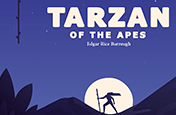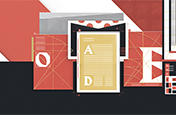Make your mark with ink drawing.
Ink drawing is a classic art form that lends itself to both sensitivity and boldness. Explore the ins and outs of this medium and how to tackle it in a digital landscape.
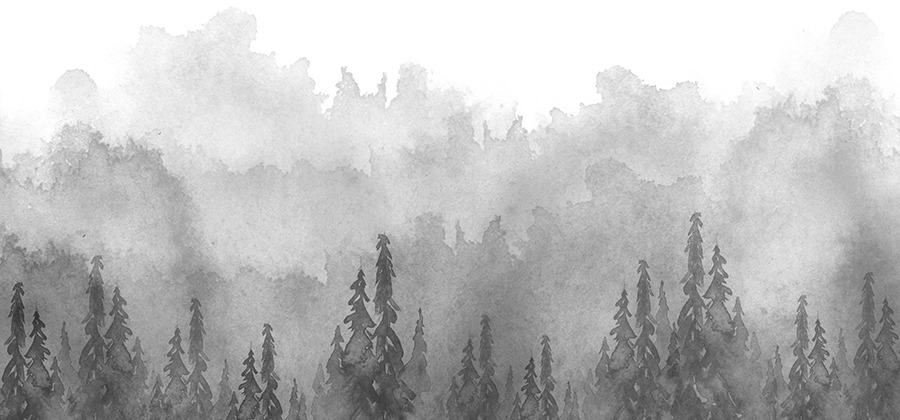
What sets ink drawing apart?
Ink is unlike other forms of drawing and painting because it’s permanent. With pencil, you can erase. With watercolours, you can re-work. But once ink hits your sketchbook paper, it’s there for good — especially after it dries. With digital tools at your fingertips, however, that’s not the case any more. The age of digital pen-and-ink has arrived and it’s allowing artists to play with that permanence to develop the medium and push creative limits.
Choosing your materials and tools.
Before jumping into the digital inkwell, it’s important to understand ink drawing tools. “Using a brush with ink is very different from using a ballpoint pen, but they’re both ink. It’s a very broad medium and you just need to experiment,” says artist Jon MacNair. Between ink pens, markers, pens with nibs and brushes, you have a wide variety of choices and aesthetics at your disposal.
These classic tools are now available in the digital world. With customised brushes from artists like Kyle T. Webster, you can naturally create and edit ink drawings. These digital brushes let you perfect small details and easily control large areas of gradation and contrast. With Adobe Fresco, you can blend naturalistic pen lines with vector brushes and with erasing tools at your disposal, your ink drawings won’t be ruined by one hastily drawn mark.
Ink drawing techniques to explore.
“The fastest way to get good at using a pen is to embrace mistakes and not worry about making sure every line is perfect,” notes artist Violet Reed. When it comes to ink drawing, practice is your best tool. Don’t take your first draught draft too seriously, especially when learning how to use digital drawing tools. There’s always time to adjust it later. Practice strong, dark outlines — a classic aesthetic in ink drawing — and don’t forget about shading.
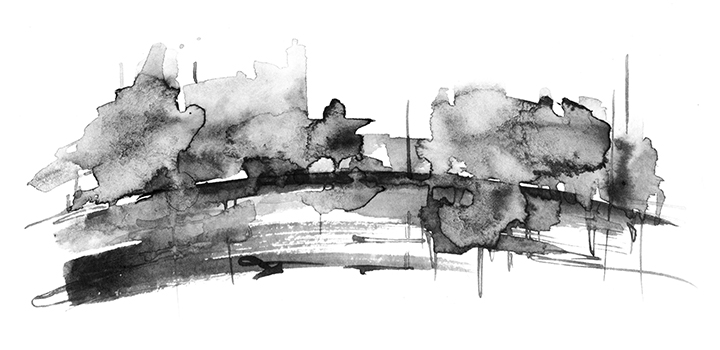
Explore cross-hatching.
Consider experimenting with hatching and cross-hatching in your ink drawing. This involves shading your drawing with a series of parallel or perpendicular lines and building up line thickness and density to add shadow. You can create this look through filters and brushes in Adobe Photoshop or by crafting shapes in Adobe Illustrator.
Try your hand at stippling.
Stippling is an effective technique that uses small dots, squiggles or marks to build up areas of shadow. With multiple built-in scatter brushes, it’s an easy technique to apply to your digital drawings. If you’re creating your own customised stippling brush, make sure that you follow this customised scatter brush–building guide.
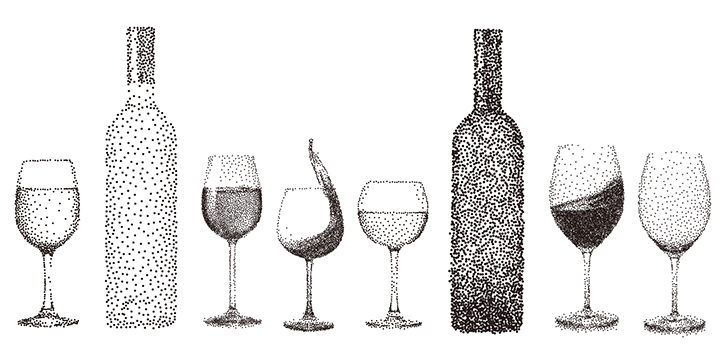
Don’t shy away from splatters.
When drawing with ink on paper, you’re bound to create splatters. Go ahead and create those splatters and splotches and then transform them into digital brushstrokes. While splatters and smears on paper are unpredictable, in a digital file they can give you the organic lines and black-and-white contrast you’re looking for to create that old-school authenticity.
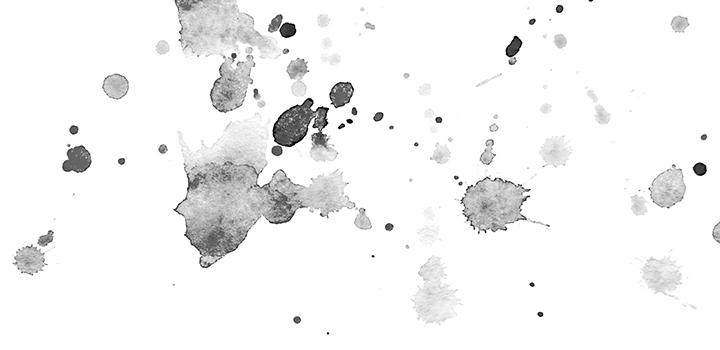
Experiment with ink washes.
Ink washes are extremely effective for shading large areas of gradation and are traditionally created by diluting ink with water and applying it to the paper with a brush. Bring this aesthetic to your digital art by experimenting with different digital brushes to create the gentle areas of slight variation or striking spans of harsh contrast indicative of ink washes.
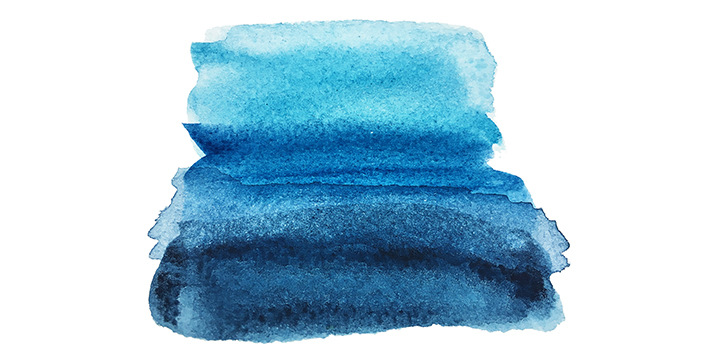
See ink drawing in action.
These samples from artists on Behance can help guide your journey into pen-and-ink drawing.
- Discover a plethora of stunning work other artists have created with Adobe Fresco.
- Take a look at these beautiful contour line drawings with some stippling thrown in.
- See how you can achieve organic shapes and stark contrast .
- Pen-and-ink also provides a great opportunity to .
- Explore both precise and organic brush and pen strokes in calligraphy.
With its vivid lines and gentle washes, ink is a very versatile medium. And just as with any art form, notes illustrator and ink artist Jung Hu Lee, “Once you’re allowed to make mistakes and not be intimidated by ink, you suddenly see how enjoyable it is and how your mistakes can end up looking really good.”
Contributors
Do more with Adobe Illustrator.
Create logos, icons, charts, typography, handlettering and other vector art.
You might also be interested in…
Take your skills to the next level with drawing exercises and advice from professional illustrators.
Try your hand at pencil sketching.
Pencil drawing is an essential first step for most artists. See how this skill can improve your art.
Beginning a career in children’s book illustration.
Get insight and advice into the competitive world of art for kid’s literature.
Explore inspiration to help fuel your logo ideas.
Dive into the technical and aesthetic concerns of distilling a brand into a symbol.


